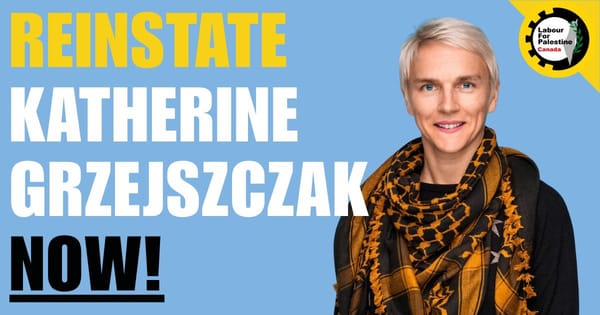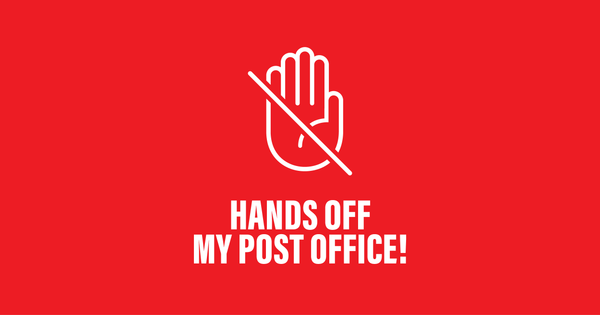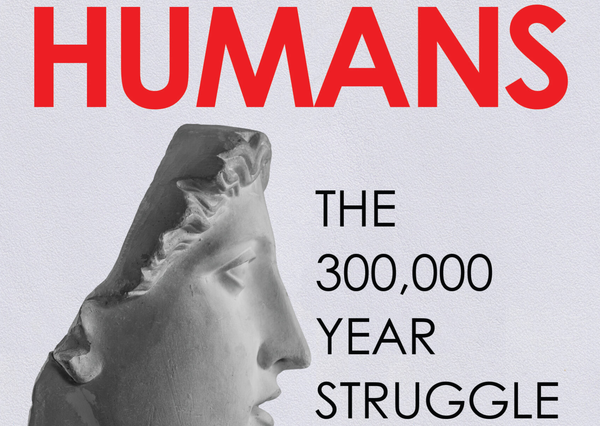
Israel’s recent military assault on Gaza — following news of the planned forced eviction of Palestinian residents from the Sheikh Jarrah neighbourhood in East Jerusalem — has led to mass protests and civil actions across the world. As many have remarked, it feels as though public discourse is shifting to a place where solidarity with the Palestinians is both more common and less controversial.
Although the latest round of Israeli state and settler violence has subsided somewhat amidst the temporary ceasefire, the status-quo of occupation, illegal settlement expansion, and apartheid continues to oppress Palestinians.
In this issue of Class Struggle, I thought it would be worth taking stock of the international labour movement’s positions and actions in support of Palestine. Overall, there are promising signs that labour the world over is making strides to support Palestinian self-determination. Yet, plenty more organizing will be necessary to turn words into action in order to use labour’s structural power to aid Palestinians.
Why Labour?
Labour plays a critical role in the struggle for Palestinian freedom because of the economic leverage organized workers can exercise. Corporate interests inside Israel and the occupied territories and throughout the world — many of them with significant financial and productive interests — depend on workers and their collective organizations remaining acquiescent in the face of continuing violence and apartheid against the Palestinians.
However, this also places organized workers in a strategic position. Exercising collective power through work stoppages and strikes, boycotts, and international solidarity campaigns has the potential to disrupt business as usual for the right-wing Israeli regime and the capitalists who do business with it. If willing, labour movements within their respective nation-states can also pressure their governments to hold the Israeli government to account through suspension of trade and other economic and diplomatic sanctions.
The potential power of organized labour is evident both within Israel/Palestine and across the globe. It is therefore promising to see Palestinian workers and their allies exercising power as workers, drawing on a history of militant trade unionism connected to the struggle for national self-determination.
Strategically placed workers in other parts of the world are also using their leverage to apply pressure on the Israeli government and complicit corporations. As well, growing numbers of unions, union locals and national and international trade union federations are expressing their solidarity with the Palestinian people and their struggle.
Ultimately, the international labour movement still confronts considerable challenges that prevent it from wielding all of its latent power in the cause of Palestinian solidarity. Yet organized labour is still an integral part of the movement for a free Palestine.
Labour Inside Israel/Palestine
Many now recognize that Israel is a settler-colonial project. Like all settler societies, the Israeli state is fundamentally concerned with the acquisition of land and the displacement of those living on it.
The struggle against “Israeli apartheid” has mostly been framed around issues of land, forced separation and unequal citizenship rights, and understandably so. But Israeli society and its economy are also quite dependent on subjugated Palestinian labour, both within the 1948 borders and in the settlements of the West Bank.
Approximately 1.93 million Palestinians are citizens of Israel, most of whom are workers possessing fewer rights than the Jewish majority. In the West Bank and East Jerusalem, there are around three million Palestinians, many of whom travel to Israeli cities, towns or settlements to work, particularly in the construction industry.
The Israeli government’s economic strangulation of the West Bank economy creates a compulsory workforce of Palestinians with few other options but to spend long days crossing checkpoints to labour in settlement construction, effectively participating in their own displacement.
On May 18, hundreds of thousands of Palestinians participated in a general strike called first by the Higher Arab Monitoring Committee, an independent political body that coordinates among Palestinian organizations in Israel, under the banner of “Dignity and Hope.” The reach of the general strike, however, seems to have largely been the result of rank-and-file organizing.
In an historic coming together of Palestinians across various borders and checkpoints, workers and small shop-keepers stopped work to protest racism within Israel, the blockade and military campaign directed at Gaza, and the violent evictions in East Jerusalem. (For some moving photos from May 18, visit here.)
In the construction sector, the Israeli Builders Association reported that all but 150 of the approximately 65,000 Palestinian construction workers participated in the strike, causing losses estimated at $40 million USD.
Some 910 Palestinian bus drivers also joined the strike, representing about 10 per cent of the public transportation workforce. Around 30,000 Palestinian maintenance workers across various sectors of the Israeli economy — 30 per cent of this workforce — struck as well. Schools and government offices in Arab towns were closed, as well as most retail stores in the West Bank and East Jerusalem.
Palestinian cleaners who observed the general strike also caused significant disruption to Israeli businesses and public spaces. According to the employer association of cleaners, around 5,000 Arab cleaners didn’t work on May 18. The Arab Higher Monitoring Committee called the level of participation in the strike “unprecedented.”
Moving from one-day general strikes to a concerted trade union campaign among Palestinians is a difficult proposition. Palestinian trade unions are barred from organizing Palestinian workers in the West Bank. Some Palestinians in industrial zones are members of Israeli trade unions, but independent organization is difficult if not outright illegal. Under these circumstances building a trade union infrastructure capable of sustained organizing and class struggle in the long-term remains a significant challenge.
Yet it seems many Palestinians have grasped and are committed to using their power as workers in the struggle for self-determination. Moreover, trade unions and worker organizations in historic Palestine are calling on the international labour movement “to take immediate action in solidarity with the Palestinian struggle for freedom and justice.”
International Labour Solidarity
What about the labour movement internationally? The United States — which provides Israel with nearly $4 billion per year in military aid and is therefore most responsible for the state’s violent assaults on Palestinians — unfortunately also has one of the West’s weakest labour movements. Even within what remains of the “house of labour” in the U.S., there is considerable division.
The American Federation of Labor (AFL-CIO), and its president Richard Trumka, remain staunch defenders and financial supporters of Israel through the purchase of State of Israel bonds. Other prominent American labour leaders, such as Stuart Appelbaum of the Retail, Wholesale and Department Store Union, and Randi Weingarten of the American Federation of Teachers (AFT), vocally oppose the BDS campaign against Israel.
On the other hand, unions not affiliated with the AFL-CIO, such as the United Electrical, Radio and Machine Workers (UE), as well as various union locals throughout the U.S., support BDS and have issued solidarity statements with the Palestinians. Local teachers’ unions affiliated with the AFT are also defying Weingarten and the leadership and locally endorsing BDS, including United Educators of San Francisco (United Teachers Los Angeles has a similar resolution making its way through the various voting bodies of the union).
There is thus a growing chasm between much of the national labour leadership and various pockets of more localized and progressive trade unionists when it comes to support for the Palestinian struggle.
In Canada, the labour movement frequently expresses solidarity with the Palestinians and opposes Israeli aggression. The Canadian Labour Congress issued a statement condemning the Israeli attack on the al-Aqsa Mosque and the “confiscation of Palestinian homes” in Sheikh Jarrah. The Ontario Federation of Labour, as well, released a detailed statement in solidarity with Palestinians, linking the latter’s struggle with those of Indigenous peoples in Canada. Labour4Palestine (a pan-Canadian network of labour activists), in collaboration with Labour Against the Arms Trade Canada, has called on Canadian labour to join a campaign to demand the Government of Canada “immediately suspend bilateral trade of all arms and related materials with the State of Israel.” Labour4Palestine is keeping a running thread of unions, union locals and federations, and labour councils who have signed onto the campaign.
In the United Kingdom and Europe, trade union confederations have also recently released statements in support of the Palestinians. The U.K. Trades Union Congress has called for an end to the “Israeli government violence against Palestinians,” concluding that the group stands “in solidarity with the Palestinian families in Sheikh Jarrah and all of the victims of the violence of recent days.” Also in the U.K., activists from Palestine Action occupied the roof of drone manufacturer UAV Tactical Systems, a subsidiary of Israeli weapons firm Elbit Systems in an attempt to prevent drones and other surveillance technology from continuing to flow to the Israeli military and police. In an inspiring act of solidarity, the UK Fire Brigades Union refused to remove Palestine Action members from the roof.
The Irish Congress of Trade Unions issued a more forceful solidarity statement following a meeting with Palestinian Ambassabor Jilan Wahba Abdalmajid. The International Trade Union Confederation, which has 332 national affiliates, also called for an end to Israeli violence, locating the “root cause” of the recent escalation in the “unjust and illegal occupation of Palestinian lands, and the perpetuation of the occupation of Palestine by Israel.”
In some cases, organized labour has gone beyond declarations of solidarity and support to take direct strike action against Israeli aggression. On May 17, Italian port workers in Livorno refused to load a shipment of arms on route to Israel. The L’Unione Sindacale di Base said that, “The port of Livorno will not be an accomplice in the massacre of the Palestinian people.”
Following the Livorno action, South African dockworkers, members of the South African Transport and Allied Workers Union, refused to offload cargo from an Israeli ship in Durban, recalling how international trade unions took action to end the system of South African apartheid. The International Dockworkers Council also issued a collective statement of “unconditional support for the Palestinian general strike.”
These various actions are particularly important given the strategic place of workers in the global shipping industry. Indeed as the BDS Movement notes, shipping workers have grown to be key allies in the struggle for Palestinian liberation since Swedish dockworkers first blockaded more than 500 tonnes of goods in reaction to the 2010 Israeli attack on the “Gaza Freedom Flotilla,” which was bringing desperately needed aid to Palestinians in Gaza.
Along with the growing numbers of unions around the world who have signed onto the BDS Movement, these latest statements of solidarity and direct actions are promising signs. However, it must be remarked that declarations of solidarity only get us so far. Ultimately, national labour movements will need to exercise greater power on their own governments to isolate Israel and force it to recognize Palestinian rights to freedom and self-determination. There is no question, however, that organized labour must play a central role in this struggle.






